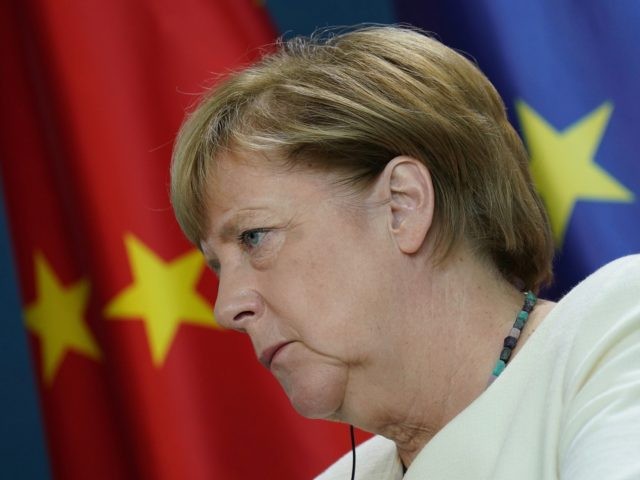European Union leaders reportedly blocked attempts from the United States, Britain, and Canada to call out the Chinese Communist Party (CCP) for the use of slave labour in Xinjiang.
EU leaders said that the West should focus on “cooperative” areas with China instead of adversarial elements.
German Chancellor Angela Merkel, Italian Prime Minister Mario Draghi, and European Union leaders Ursula von der Leyen and Charles Michel opposed efforts to publicly shame the regime in Bejing over forced labour in Xinjiang, The Times reported.
The summary of the G7 communiqué failed to mention China, Xinjiang, or Hong Kong at all and the full 25-page report of the summit’s agreements reportedly had a reference to Xinjiang slavery removed despite pushes from the Americans.
The final version of the G7 communiqué read: “We are concerned by the use of all forms of forced labour in global supply chains, including state-sponsored forced labour of vulnerable groups and minorities, including in the agricultural, solar, and garment sectors.”
A US administration official told the paper that reaching an agreement on China became “one of the more complicated and thorny” issues at the summit.
The 90-minute foreign policy meeting, which almost entirely consisted of discussions on China, saw the United States, the UK, Canada, Japan, and France seeking a harder line on China and the Europeans looking for a softer approach.
The unnamed official said that there was “a little bit of differentiation of opinion, not on whether the threat is there but on how strong, from an action perspective, different G7 members are willing to take this”.
G7 leaders did agree to mention Xinjiang and Hong Kong once in their 25-page report, which said: “We will promote our values, including by calling on China to respect human rights and fundamental freedoms, especially in relation to Xinjiang and those rights, freedoms and high degree of autonomy for Hong Kong enshrined in the Sino-British Joint Declaration and the Basic Law.”
President Joe Biden, for his part, said that he was “satisfied” with the language on China, saying that the “last time the G7 met, there was no mention of China but this time there is mention of China.
“We’re in a contest, not with China per se, but a contest with autocratic governments around the world, as to whether or not democracies can compete with them in the rapidly changing 21st century.”
On Monday, a spokesman from the Chinese embassy in the UK said in response to the mild condemnation: “Stop slandering China, stop interfering in China’s internal affairs, and stop harming China’s interests.”
An article in the CCP mouthpiece, the Global Times described efforts to condemn slavery and other human rights abuses as a “US plot”.
“Time will wear down the scheme of the US. If China is stable on its own, there is no need to push or trip it up, as the US will stumble on its own,” the state-run paper said.
The European Union has long been seeking deeper ties with the communist regime in Beijing, agreeing in principle late last year to a massive trade deal with China.
In announcing the deal — which was ultimately put on hold after a series of tit-for-tat sanctions from the EU and China — the European Commission described the investment pact as the “most ambitious agreement that China has ever concluded with a third country.”
Yet, the deal failed to require that the Chinese government stamp out modern slavery, in places such as the concentration camp province of Xijiang, as a prerequisite for the agreement, sparking international outrage.
The deal was championed by German chancellor Angela Merkel, under whose leadership Germany has seen its economic reliance on China increase to the extent that the communist nation became Germany’s top trading partner in 2018.
Two of Germany’s top companies, Volkswagen and BMW, have both been accused of profiting from the use of slave labour in the Xinjiang region.
Follow Kurt Zindulka on Twitter here @KurtZindulka

COMMENTS
Please let us know if you're having issues with commenting.